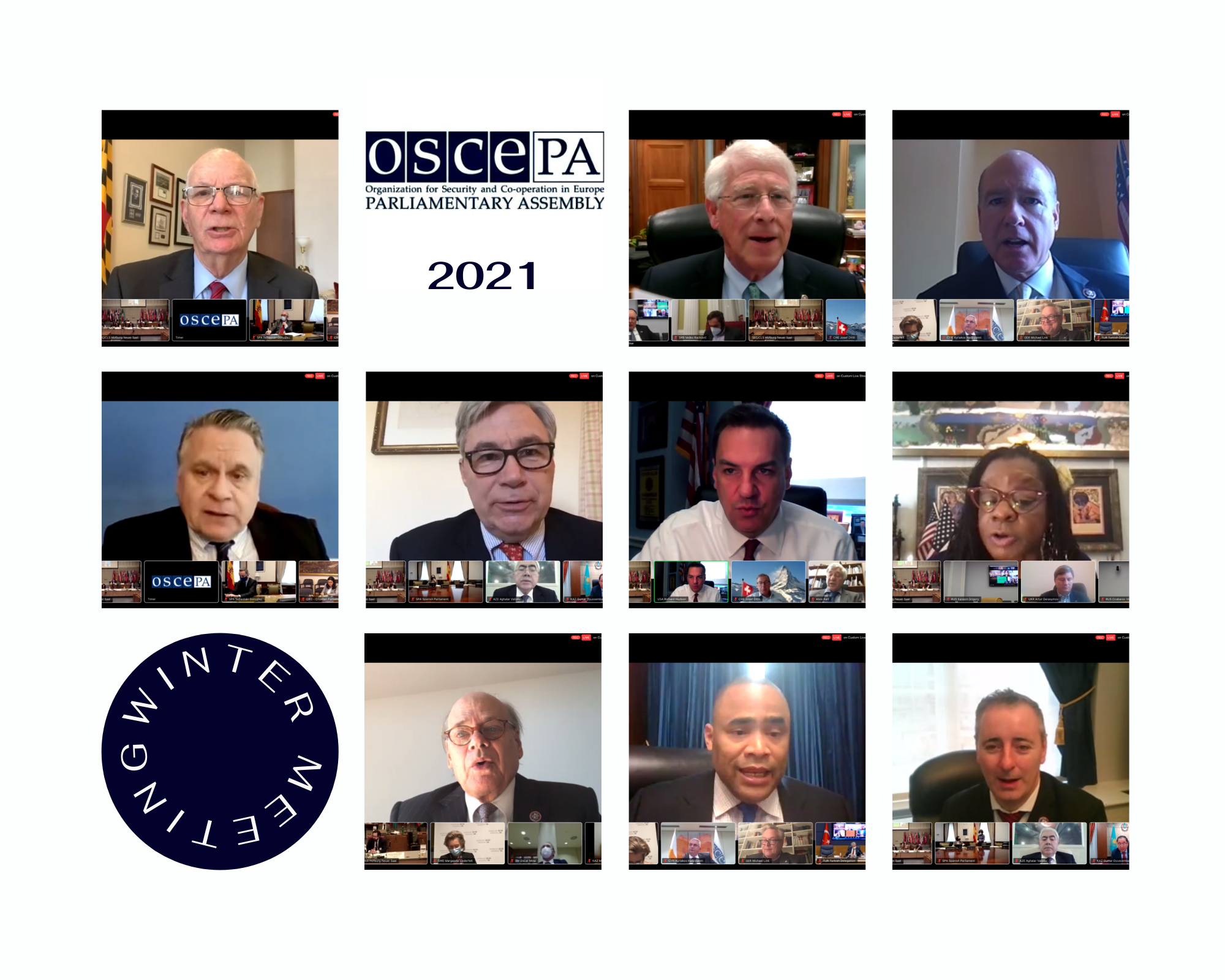This hearing highlighted the racism and discrimination faced by Black Europeans. Witnesses discussed the contributions Blacks have made to Europe and the root causes of this racism and discrimination, particularly the role of the colonial dynamic. Witnesses and Commissioners mentioned the parallel between the United States and discussed how Europe could learn from America’s experiences fighting similar problems.
Members
Hon. Alcee Hastings
Chairman
Commission on Security and Cooperation in Europe
Hon. G.K. Butterfield
Commissioner
Commission on Security and Cooperation in Europe
Hon. Christopher Smith
Ranking Member
Commission on Security and Cooperation in Europe
Hon. Barbara Lee
Member of Congress
House of Representatives
Hon. Carolyn Kilpatrick
Member of Congress
House of Representatives
Hon. Donald Payne
Member of Congress
House of Representatives
Witnesses
Hon. David Kramer
Executive Branch Commissioner, Assistant Secretary of State for Democracy, Human Rights, and Labor
Department of State
Joe Frans
Vice Chair
United Nations Working Group on People of African Descent, and former Swedish Parliamentarian
Gary Younge
British Columnist
The Guardian Newspaper
Dr. Philomena Essed
Commissioner
Antioch University, the Netherlands, Equal Treatment Commission
Dr. Allison Blakely
Author and Historian
Boston University
Dr. Clarence Lusane
International Race Politcs Author
American University
Relevant Issues
Leadership
Fifteen Years of the Recommendations of Policing in ...
Nov 15, 2021By Nathaniel Haas, Max Kampelman Fellow On November 5, 2021, the OSCE High Commissioner on National Minorities convened a hybrid conference commemorating the 15th anniversary of “Recommendations on Policing in […]

HELSINKI COMMISSIONERS JOIN OSCE PA MEETING ON AFGHA...
Nov 09, 2021On November 4, 2021, more than 40 members of the OSCE Parliamentary Assembly (PA) met remotely to discuss the current security challenges posed by developments in Afghanistan and the future […]
Helsinki Commission Delegation Advances Priority Iss...
Jul 15, 2021WASHINGTON—Helsinki Commission Chairman Sen. Ben Cardin (MD) and Ranking Member Sen. Roger Wicker (MS) last week led a U.S. delegation to the 2021 OSCE Parliamentary Assembly (PA) Annual Session in […]
45th Anniversary of the U.S. Helsinki Commission
Jun 21, 2021I take this time as the Chair of the Commission on Security and Cooperation in Europe, better known as the Helsinki Commission, as we celebrate our 45th anniversary. The Helsinki […]
Tribute to Erika Schlager
Jun 21, 2021I want to acknowledge one individual who recently announced that she is retiring, Erika Schlager, after 34 years of service to the Commission and to the global community. Erika received […]

Helsinki Commission Commemorates 45 Years of Advanci...
Jun 03, 2021WASHINGTON—To commemorate the 45th anniversary of the Commission on Security and Cooperation in Europe, also known as the U.S. Helsinki Commission, on June 3, Chairman Sen. Ben Cardin (MD) and […]
Helsinki Commission Leaders Commemorate Internationa...
Apr 08, 2021WASHINGTON—Ahead of International Roma Day on April 8, Helsinki Commission Chairman Sen. Ben Cardin (MD), commission leaders the late Rep. Alcee L. Hastings (FL-20) and Sen. Roger Wicker (MS), and […]

Senator Ben Cardin Returns to Lead Helsinki Commission
Mar 24, 2021WASHINGTON—The Presiding Officer, on behalf of the Vice President, yesterday announced the appointment of Sen. Ben Cardin (MD) as chair of the Commission on Security and Cooperation in Europe, also […]
Helsinki Commission Leaders Commemorate Internationa...
Mar 19, 2021WASHINGTON—Ahead of the International Day for the Elimination of Racial Discrimination on March 21, 2021, U.S. Helsinki Commission leaders Rep. Alcee L. Hastings (FL-20), Sen. Roger Wicker (MS), Rep. Joe […]
The Ongoing Importance of the Work of the U.S. Helsi...
Mar 16, 2021Madam Speaker, I rise today to discuss the work of the Commission on Security and Cooperation in Europe, also known as the Helsinki Commission and its continued importance in addressing […]

Ten-Member Congressional Delegation Demonstrates Ong...
Mar 05, 2021By Bob Hand, Senior Policy Advisor Approximately 270 parliamentarians from across the OSCE region gathered virtually from February 24 – 26 for the OSCE Parliamentary Assembly’s Winter Meeting, the first […]



